- Home
- Joel Goldman
Cold Truth Page 2
Cold Truth Read online
Page 2
"Sage advice," Blues said.
"Okay, people," Mason said. "I know you aren't the support group for the perpetually single and relationship impaired, but what the hell just happened?"
"I invited her to dinner to fill out the table. Besides, you need to meet someone new," Claire explained.
"I'm not talking about that," Mason said. "You've fixed me up with every Matzo Ball Queen since Moses parted the Red Sea, but I still don't know what happened. I'm off to the fastest start since Secretariat won the Triple Crown until Mickey mentions Gina Davenport's murder. Next thing I know, I'm sitting between my aunt and an empty chair."
Claire said, "If she wants you to know, she'll tell you."
Tuffy was sleeping on her pillow in the otherwise empty living room when he got home. The German shepherd-collie-mixed-breed anti-watch dog opened one eye, yawned, and rolled over.
Mason walked around the sparsely furnished first floor of the house Claire had given him and his ex-wife, Kate, as a wedding present. Empty rooms and a sleeping dog were all that remained of that relationship. His great-grandparents stared down at him from their framed photographs on the dining room wall, a room they shared with his rowing machine.
"Yes, Abby is a nice Jewish girl," Mason said to his unsmiling ancestors. "And, yes, I blew it again," he added with an indulgent note of self-pity. "Okay," he told them. "Maybe I didn't blow it. I'll call her and tell her that defending people accused of murder doesn't have to ruin a party."
Yet Mason didn't believe that Abby's reaction had been to his job. She had to be connected to the case in some way that made Dr. Gina's death and Mason's involvement too personal for her. His first guess was that Abby was also Dr. Gina's patient, perhaps even making her a suspect. Neither possibility fit with her incendiary impact on Mason, though either would explain Claire's insistence on keeping him in the dark. Maybe, he thought, Abby and Dr. Gina were close friends and she couldn't hold hands with someone who was defending her friend's accused killer. The only thing Mason was certain of was his need to find the quickest way over the top of the wall that had risen between him and Abby Lieberman.
Mason's phone rang, spawning the instant fantasy that the caller was Abby. He picked up the phone in the kitchen.
"Hello," he said, kicking off his shoes.
"It's Sherri Thomas, Channel 6 News."
Mason sat down and rubbed his tired feet. "What can I do for you, Sherri?"
"Sorry to bother you at home. I hope I'm not calling too late."
The clock on the stove read 9:45 P.M. Mason knew that Sherri wasn't sorry about the bother or the time. The ten o'clock news was coming up and she was on deadline, trying to resurrect her reputation as a serious journalist. Her unprofessional broadcast of Dr. Gina's death would have cost her job except for the spike in her station's ratings. She apologized on the air and promised to follow the murder of Gina Davenport wherever it led, underscoring her commitment to hard-hitting reporting from the streets of Kansas City.
Mason had watched Sherri's apology, certain that her only regret was being caught reveling in tragedy. He had no interest in giving her career a boost.
"Not a problem," Mason said. "I'm staying up to watch the news. The Daily Show doesn't start until ten."
"They told me you were a smart-ass," Sherri said.
"Really. Who are they? Or are your smart-ass sources confidential?"
"I'm running a story at ten that the police are investigating possible ties between the Hackett family and the murder of Dr. Gina Davenport. Care to comment?"
"Why would I have any comment?" Mason asked.
"Because my sources—and they are confidential, whether they're assholes or otherwise—say that you are representing the family."
Mason didn't give her credit for intrepid reporting. Arthur Hackett had called the general manager at Channel 6 to request a copy of the videotape for Mason. Mason had talked to Ted Phillips, the cameraman, when he picked up the tape. He was a well-known criminal defense attorney who snagged his share of high-profile murder cases. It wasn't tough to put together.
"If that's true, you know I don't have any comment.
If it weren't true, I'd just be making something up. So what do you really want?"
"I'm going to stay on this story like white on rice, Lou. Help me out and you'll get more good coverage than you know what to do with. Besides, you can't give all your stories to Rachel Firestone. There's no payoff with her."
Mason wasn't interested in the spotlight, though his clients too often dragged him into its glare. Rachel had covered Mason's involvement in the collapse of Sullivan & Christenson, his one-time law firm, and in the Dream Casino case. They became close friends, turning their relationship into fodder for local media gossip, especially since Rachel was gay. If their relationship compromised her reporting, she left the reporting to someone else. Mason didn't know how that would work out in the Davenport case, but he doubted that Rachel would bring Sherri Thomas in off the bench. Sherri's crass pitch for his business was a step removed from a street solicitation—a small step.
"Like white on rice?" Mason asked. "Who writes your material? Never mind. I don't discuss my clients or people who aren't my clients. Keep your payoff for somebody who needs it. I don't."
Sherri laughed. "You've got to try harder than that to shame me, Lou. I make the news. You can either be the lead or the punch line, but you can't ignore me."
"Sure I can," Mason told her. "That's what the remote control is for. See you in the funny pages."
Chapter 3
Sanctuary was secreted off the interstate, off the back roads, in an unincorporated patch of Jackson County in the general direction of St. Louis. The locals called their piece of the action Eastern Jack. Downtown Kansas City was also in Jackson County, but Eastern Jack was a different world. Defined more by the blue collars of Independence and Raytown than the white collars of downtown, Eastern Jack made no pretense of its lack of pretension.
The unincorporated areas outside these smaller cities harbored woods, meadows, and streams that shut out concrete and high-rises, giving nature its own reservation in the civilized world. The natural defenses against the urban onslaught underscored the safety of Sanctuary, touting isolation as security.
"East of the sun and west of the moon, two stars to the right and on till morning." Mason recited the poem from memory unable to name the poet or finish the verse, as he navigated his TR-6 along the convoluted route he'd downloaded from Sanctuary's web site. It was a top-down morning, the sun soothing, not yet hot. Morning fog painted deer tracks with vapor trails. Moist earth, wild grasses, and unseen animals perfumed the air with a musk scent.
Mason had spent his whole life in the city. He wasn't a Boy Scout and couldn't find moss on the north side of a tree. The drive reminded him of Kelly Holt's log cabin sanctuary in the Ozark woods. She was the last woman who'd made him feel the way Abby had. Kelly's sanctuary had proved anything but, and his relationship with her had died in its ashes. Mason hoped the past was not prologue.
He was surprised that it took less than forty-five minutes to reach Sanctuary from the urban comforts of his office. It was set on the ridge of a broad gentle rise, and Mason immediately understood why Centurion Johnson had chosen the location. The road he'd been on emerged from the woods into a freshly cut meadow of several acres that surrounded a large white three-story plantation-style house, complete with a widow's walk around the roof. The natural elevation gave the house an imposing setting, making it appear larger than it was while giving its occupants a commanding view of the countryside. Mason guessed that Centurion could see the downtown skyline twenty miles to the west from the widow's walk.
He parked his car in the wide circle drive, walking onto the veranda that wrapped around three sides of the house. A continuous message engraved on the railing in platinum paint read The New Century Investment Fund Veranda. A freshly painted red barn was emblazoned with the logo of the Commercial Bank Group. Next to it was a machine shed, according to
the boldly painted billboard on one wall naming it the USA Telecom Machine Shed. The Mid-America Business Network had paid to have its name embossed on the tractor that was parked next to the shed.
The kaleidoscope of advertising reminded Mason of Centurion Johnson's successful fund-raising campaign for Sanctuary. Pronouncing himself a survivor of the streets, not a victim, Centurion sold Sanctuary with the fervor of a Sunday morning television evangelist. The land was donated, the buildings erected and furnished, and the doors opened to the miscast and maladjusted. Sanctuary provided refuge for young people fleeing abuse, both parental and substance, and a haven for the emotionally brittle. The permanent ads for the contributing sponsors were a constant reminder of the harsh reality of the real world. Follow the money.
Centurion told his sponsors that Sanctuary was no kick-back-meditate-blame-the-old-folks hideout for troubled kids. Not on his watch, he told them. It was a working farmstead. These kids work, clear the land, plant the crops, care for the livestock. Sure, he promised, they would get professional counseling. But they'd also get blisters and backaches from a hard day's work. Nothing like sweat and strain to clear your brain, he told one cheering audience of businessmen who responded by throwing money at him like it was confetti.
Sanctuary was the model for successful partnerships between the business and social service communities, a not-for-profit that made a return on its sponsors' investment by giving them a visible stake in its success. When Mason saw a Mercedes 500 SL parked in the open garage with a vanity plate that read Centurion, he recognized another harsh reality. If crime doesn't pay, good works surely do.
"You must be Lou Mason," a voice said from behind him.
"That I am," Mason said, turning around to a man dressed in denim and tie-dye, his graying hair pulled back in a short ponytail held in place by a leather strap. His round face was sun-lined, open, and friendly. His body was soft, and shaking his hand felt like squeezing a small feather pillow.
"I'm Terry Nix. We spoke yesterday."
Sanctuary did not allow visitors without an appointment cleared in advance by the Executive Director. That was Nix. The policy prevented disruption of the work and therapy schedule, according to the web site. Mason had jumped through the hoops to meet Jordan Hackett, but he didn't like someone else controlling access to his client.
"Mr. Nix," Mason said, "I never know when I'm going to need to see Jordan. I assume you'll waive your appointment policy under these circumstances."
"Call me Terry," Nix said, giving Mason a pat on the back. "We're in the problem-solving business here. I think we can handle that one. Let's go inside."
Nix ushered Mason through the Phillips Pharmaceutical front hall, where a young woman, heavily pregnant, asked Mason to sign in and clip a guest badge to his shirt. They continued past the Kilbridge Foundation family room, down the S&J Railroad stairs, to the Hammond Industries Executive Director's Office. A secretary, also young and pregnant, sat at a desk outside the office, struggling with a word processing manual.
Nix's name was on the door too, though on an easily replaced magnetic strip. Nix sat on the edge of his desk, Mason standing, looking over Nix's shoulder at the framed diploma awarding Nix a master's degree in social work and family counseling from St. Louis University.
Plaques and certificates from grateful donors professing their admiration for Sanctuary's noble work flanked Nix's diploma. The one on the end caught Mason's eye. The certificate read For Outstanding Service. The donor was Emily's Fund, a name unfamiliar to Mason until he saw the signature at the bottom—Gina Davenport.
Mason gave up believing in coincidences when he gave up believing in the tooth fairy. He decided to save this one for later. "Where's Jordan?" Mason asked.
Nix looked at his watch. "She's digging postholes for a new stretch of fence. She should be back in about ten minutes."
The Hacketts had shown Mason a recent picture of their daughter. She had long, straight, light brown hair and an angular, unremarkable face. She looked past the camera like she wasn't listening when the photographer told her to say cheese. Her lips were closed in a flat seam. The camera overlooked the anger that forced her from her parents' home, giving no sense that she was a woman who could dig postholes.
Nix asked, "Why does Jordan need a lawyer?"
"Terry," Mason answered, "you know that's confidential."
"Hey, man. I'm her counselor. I need to know these things to do my job."
"Then you ask her. If she wants you to know, she'll tell you," he said, echoing Claire's admonition about Abby. "I thought Gina Davenport was Jordan's therapist."
"All of our residents are assigned an on-site counselor. I'm Jordan's. Some of our residents also see a private therapist, but most can't afford it."
"Her parents say that she lives here because she's too violent to stay at home. Are they right?" Mason asked.
"Lou," Nix answered, "you know that's confidential."
Mason smiled. "And if I tell you that I need to know so I can represent her, I'll bet you'll tell me to ask her."
It was Nix's turn to smile. "Same drill, man."
Mason suspected that Nix was one of those touchyfeely types who made every roadblock, turndown, and obstacle feel like a damn shame he couldn't do anything about and wouldn't if he could. It was a soft-soap style of aggression that was too slippery to get a grip on.
"Are you and I going to get along on this, Terry?" Mason asked.
"Absolutely, man," Nix answered with a grin that said "not likely."
"Any reason we won't?"
"Depends on what you're after. We do a good job here. Messed-up kids get a safe place to work, live, and get better. Most of them can't handle more of the real world than a hard day's work. Lawyers jack up the karma. That's a bad thing, Lou. Nothing personal."
"Maybe I should talk to Centurion about the karma," Mason said.
"Talk to me, baby," Centurion Johnson said with a deep laugh from behind Mason. "I love karma."
Centurion stood just inside Nix's office, his shoulders blocking the frame, his head barely clearing the top of the door. His father was African-American, his mother East Asian, giving him a dark-skinned mix of racial features that defied easy characterization. Life on the street and time in the prison yard had given him a powerful, heavily muscled build that combined with his natural salesmanship to make him a force of nature.
Mason shook hands with Centurion, watching his own hand disappear in the process. Centurion's grip was solid and reassuring. His oversized grin was comforting. He looked like he was ready for the back nine, wearing bone-colored chinos and a washed-out pink polo shirt that strained against his chest and biceps. Mason tried to picture him selling dope and busting heads, but couldn't summon the image.
"Lou Mason," he said as Centurion released his grip on his hand.
"Centurion Johnson," the big man replied, drawing out his name like a ring announcer, making fun of himself. "If you was my lawyer back in the day, I might never have done time. But if I never done time, I might never have straightened myself out. I woulda kept on dealin' and stealin' till some stone-cold motherfucker capped me with a nine. Then old Terry here be out of a job 'cause nobody gonna hire his sorry ass. Terry, I tell him, this ain't Haight Ashbury. It's fuckin' Missouri, man. Get over it. But these kids relate to him, you know what I'm sayin'? And without Terry, these kids wouldn't have nobody to straighten them out. And this gig is all about them kids, man."
Listening to him, Mason understood Centurion's talent. He played to his audience, picking the stereotype he guessed was expected. He chose a mix of street jive, humor, and humility to make Mason feel like one of his homeys. Mason bet Centurion did a killer Colin Powell for the Chamber of Commerce and a knockout Shug Knight for the brothers. Mason had represented enough street punks and boardroom con artists to withstand Centurion's charm.
"If they clean their plates and take out the trash, do you let them drive the Mercedes on Saturday night?" Mason asked.
> Centurion laughed again, an easy chuckle. "You know somethin', Mason? I didn't want that car 'cause I was afraid people like you might get the wrong idea about me. But the dealer, see, he sponsored the garage and said to me, CJ—he's one of those white boys calls everybody by their initials—I can't put the Mercedes logo on the outside of the garage and let you put a Ford Escort inside the garage. How's that going to look? Well, we needed a garage and that was that."
"No sacrifice too great," Mason said.
Centurion kept his smile. "Mason, why are you busting my chops on such a beautiful morning? My man Terry is doing his job. I'm doing my job. We're taking care of these kids. You're wantin' us to cut you some slack with Jordan Hackett. Didn't your momma tell you about getting more bees with honey than vinegar?"
"Sorry," he said to both of them. "You've got a great place here."
"That we do," Centurion said. "And we keep it great 'cause we stay focused and disciplined. Ain't that right, Terry?"
"Focused and disciplined," Terry repeated.
"So everybody makes an appointment in advance to see a resident. Ain't that right, Terry?" Centurion asked.
"Everybody," Terry answered.
"Everybody but you, Mason," Centurion said. "'Cause you got the balls to bust my chops and the good sense to stop before I lose my sense of humor. Terry, you make sure Mason here gets what he needs. And Mason, you be careful. That Jordan is a handful."
***
Nix told Mason to wait for Jordan outside the machine shed. While he stood in the shade, a pickup truck carrying a load of teenagers in the cab and the truck bed skidded to a stop next to the barn. The kids scrambled out, wiping dust and sweat from their faces, and headed for the house. He could hear them joking and poking one another with the ease of summer camp friendships.
A few minutes later, Jordan drove up on a four-wheel ATV pulling a small flatbed trailer loaded with tools. She killed the engine and looked up at him.
"You Lou Mason?"
"That's me."

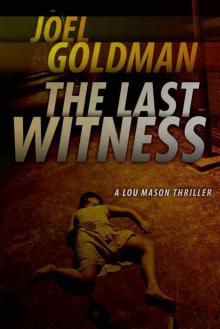 The last witness lm-2
The last witness lm-2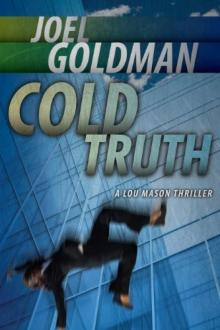 Cold Truth
Cold Truth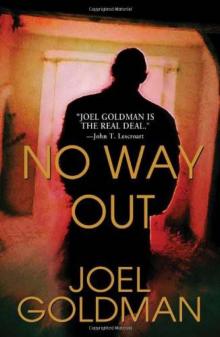 No Way Out (2010)
No Way Out (2010)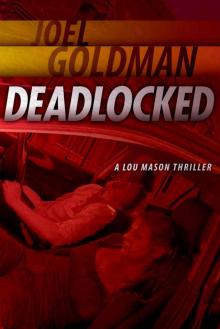 Deadlocked (Lou Mason Thrillers)
Deadlocked (Lou Mason Thrillers)![[Lou Mason 01.0] Motion to Kill Read online](http://i1.bookreadfree.com/i1/03/24/lou_mason_01_0_motion_to_kill_preview.jpg) [Lou Mason 01.0] Motion to Kill
[Lou Mason 01.0] Motion to Kill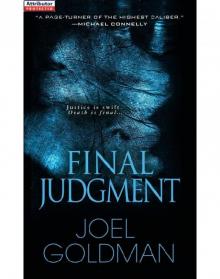 Final Judgment
Final Judgment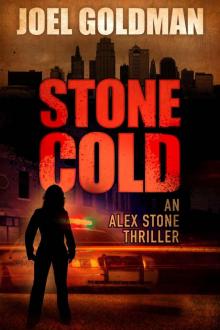 Stone Cold
Stone Cold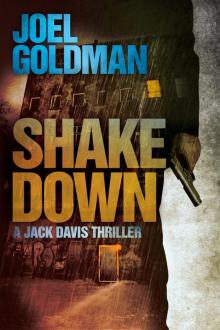 Shakedown
Shakedown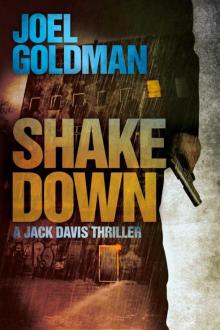 Shakedown jd-1
Shakedown jd-1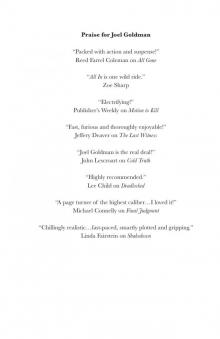 All Gone
All Gone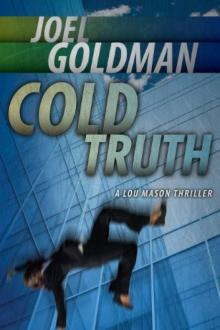 Cold truth lm-3
Cold truth lm-3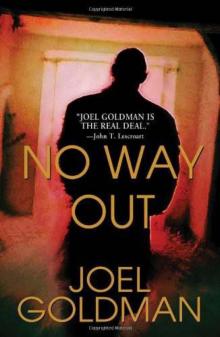 No way out jd-2
No way out jd-2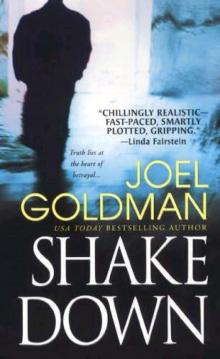 Jack Davis Mystery - 01 - Shakedown
Jack Davis Mystery - 01 - Shakedown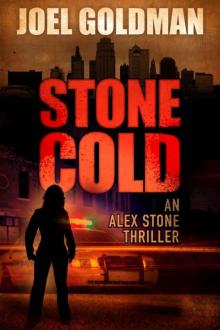 Stone Cold as-1
Stone Cold as-1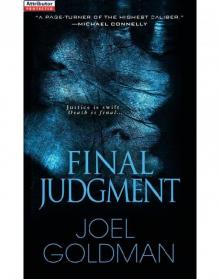 Final judgment lm-5
Final judgment lm-5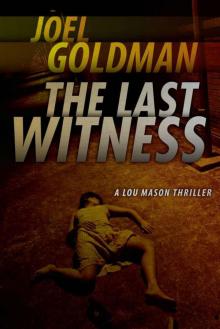 Lou Mason Mystery - 02 - The Last Witness
Lou Mason Mystery - 02 - The Last Witness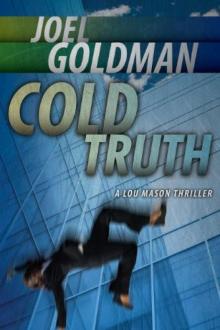 Lou Mason Mystery 03-Cold Truth
Lou Mason Mystery 03-Cold Truth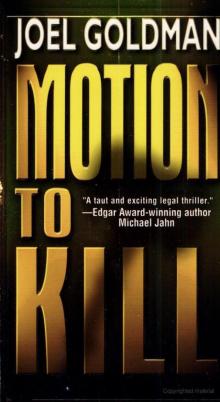 Motion to Kill
Motion to Kill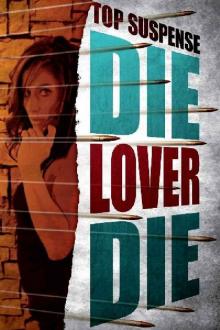 Die, Lover, Die!
Die, Lover, Die!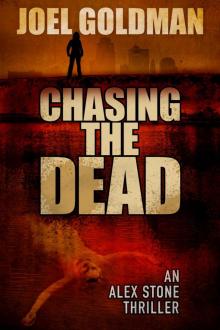 Chasing The Dead (An Alex Stone Thriller)
Chasing The Dead (An Alex Stone Thriller)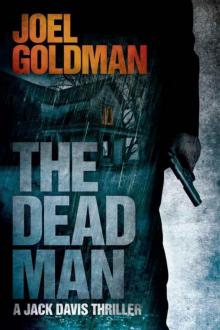 The Dead Man
The Dead Man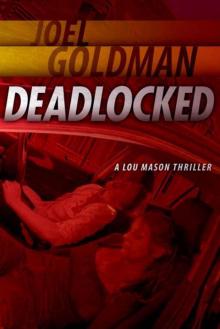 Deadlocked lm-4
Deadlocked lm-4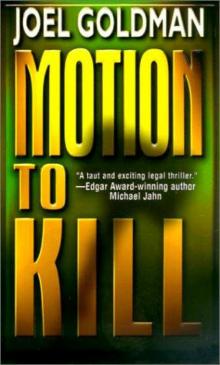 Lou Mason Mystery - 01 - Motion to Kill
Lou Mason Mystery - 01 - Motion to Kill Die, lover, die
Die, lover, die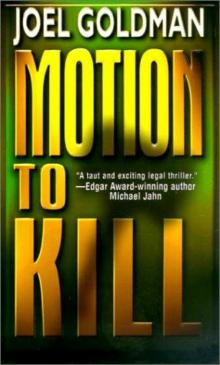 Motion to Kill lm-1
Motion to Kill lm-1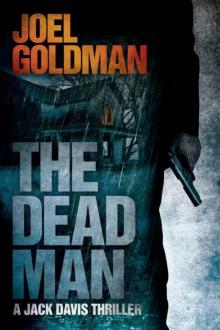 The Dead Man jd-3
The Dead Man jd-3